Napanoch, NY | home
Page 1 | Page 2 | Page 3 | Page 4 | Page 5 | Page 6 | Page 7 | Page 8 | Page 9 | Page 10 | Page 11 | Lost Towns | Contact Me and Favorite Links | Larger map view of Napanoch | Larger View of Old Lackawack Map | Napanoch Class of 1941 | Larger View of Rondout Paper Mill Picnic
Lost Towns

The Catskill Water Supply System (Ashokan and Schoharie Reservoirs) was completed
by 1926, and already, New York City knew that even more water was needed to meet its
growing demand. New York City began studies in the Rondout Valley in 1921, and by
1927, the Rondout Valley was chosen for the site of a new reservoir. When New York City
began building the Rondout Reservoir in1937,the future of three villages changed forever.
In Eureka, Lackawack, and Montela lived over 1,200 people (250 families). They were
forced to sacrifice over 1,000 buildings, including their homes, and move elsewhere. All
the bodies from the eight cemeteries in the valley had to be moved. Of the three villages,
only one, Lackawack, was relocated and still exists today. Building the reservoir required
the work of over 400 laborers, while the construction of the aqueduct needed hundreds
more. The main dam, called the Merriman Dam for the chief engineer, Thaddeus Merri-
man, who passed away during the construction of the reservoir, spans 2,600 feet from
one side of the Rondout Valley to the other.
Construction began on June 21, 1937, was delayed twice, once for World War II, once for
the Korean War, and was finally completed on July 18, 1955. When construction began,
the village of Lackawack was the first and largest to be destroyed and the only one
relocated. The largest village industry was a tannery that employed 350 men.
The historic village of Montela, known for the Battle of Chestnut Woods in 1778, was the
next to be razed. Although settled in the mid-1700s, Montela wasn't officially established
until 1886. This village was located on the border of Sullivan and Ulster Counties. The last
village to fall was Eureka, the smallest of the three villages where a grist mill provided
most of the jobs. Also founded in the mid-1700s, its post office closed forever on October
31, 1942, and like the rest, it disappeared under the water
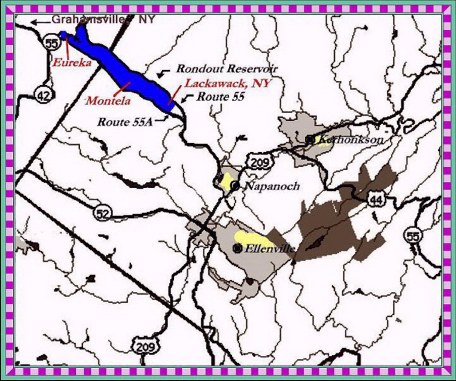
Lost towns shown in Red: Eureka, Montela and Lackawack
New signs commemorate lost towns
MARGARETVILLE, N.Y., June 15, 2004 - Road signs are being installed this summer marking
the former locations of 26 communities displaced by five New York City reservoirs in the Catskill
Region. The signs are part of a commemorative project coordinated by the Catskill Watershed
Corporation(CWC in cooperation with the New York City Department of Environmental Protection.
(DEP). In 2002, six roadside exhibits were erected - one at each reservoir - to explain the histor-
ies of the former towns, and the building of the vast New York City water system.
New signs have been installed in the Rondout basin, signs pay tribute to three towns:
Eureka, Montela and Lackawack.
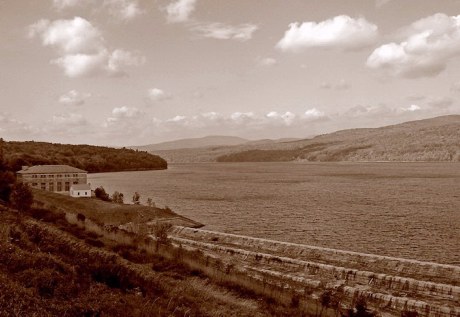
View of the Rondout Reservoir looking North from Route 55
A few Old Pictures of the old lost towns
Pictures could date back to the early 1800s. If anyone can put a date
to a picture or would like to submit an old picture of the lost towns please
email the date or picture to me and I will post it and give you a mention
Early map of Lackawack, NY
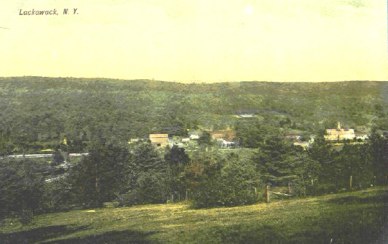
Lackawack, NY
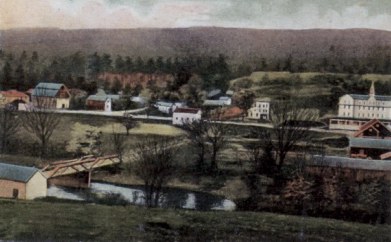
A good view of Lackawack, NY. the way it was back then.
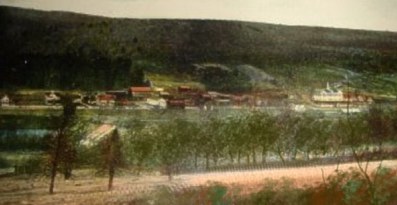
Early Lackawack Scene. Far Right the Shields Hotel.
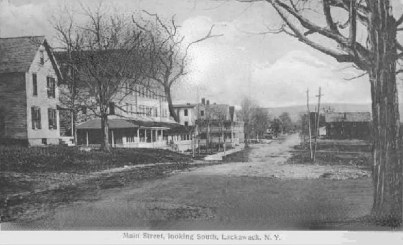
Lackawack Main Street looking South. Large building
on the left is the Shields Hotel.
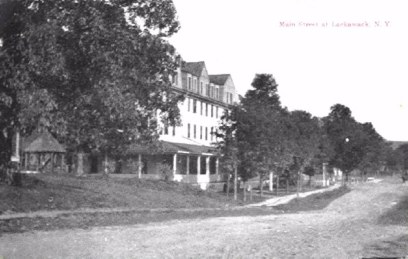
Lackawack Main Street and Shield Hotel
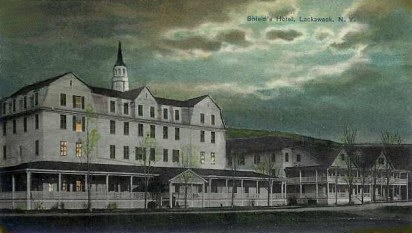
Lackawack Shields Hotel colorized Post Card. It was built
by John Sheils in the 1880s.
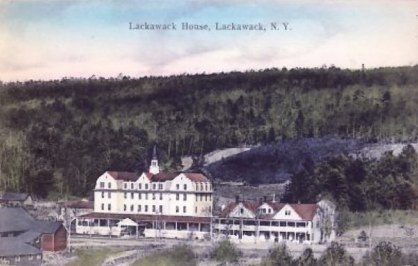
Another view of the Lackawack, NY Shields Hotel
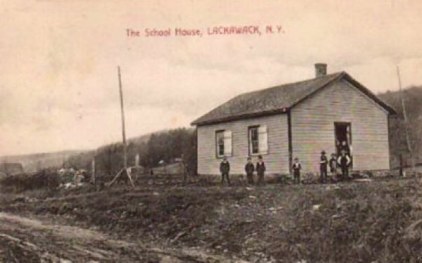
Lackawack One Room School
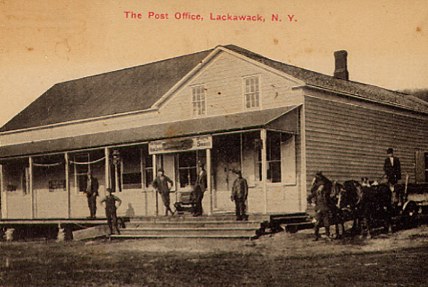
Lackawack Post Office
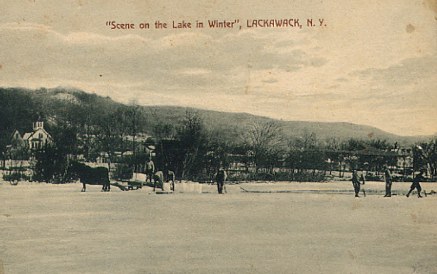
Lackawack Ice Harvest
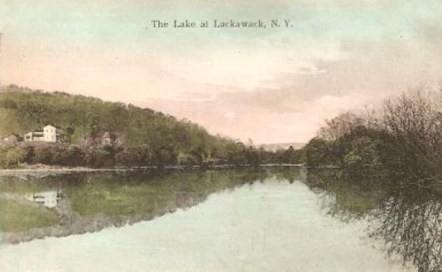
Lackawack Lake
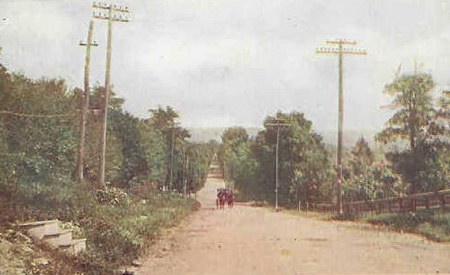
Road to Lackawack, NY 1921
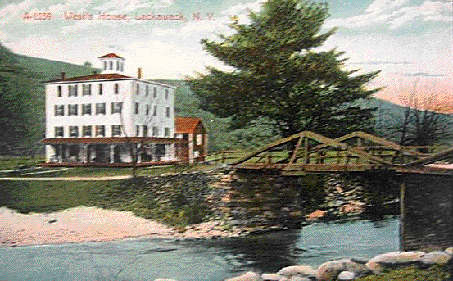
Lackawack, NY West Home. 1909. Operated by Earl West.
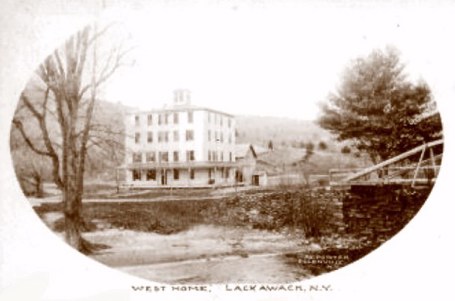
Another old post card of the Lackawack West Home
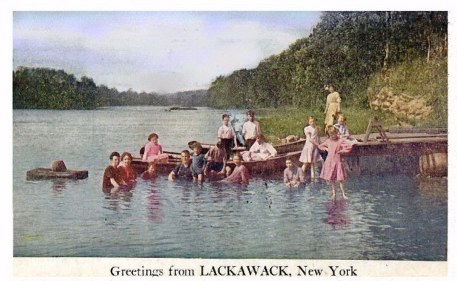
Swimming in the Rondout Stream near Lackawack, NY
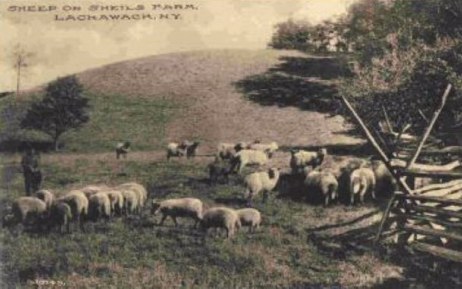
Sheep farming on Sheil's farm. Lackawack, NY
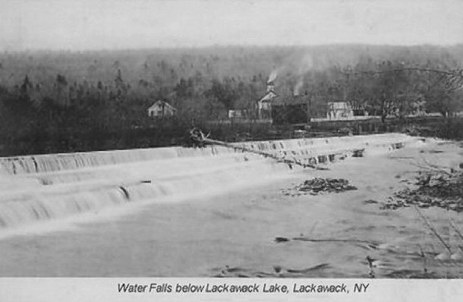
Water Falls on the Rondout Stream at Lackawack, NY
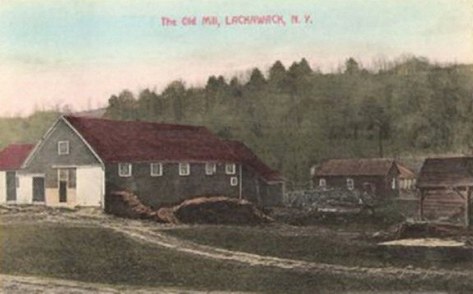
Old Mill at Lackawack, NY
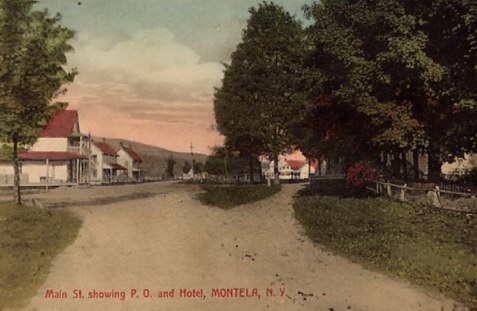
Montela Main street and Montela Hote
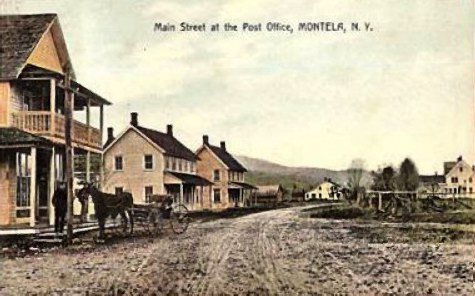 l
lAnother Montela Main Street view.. Early 1900s
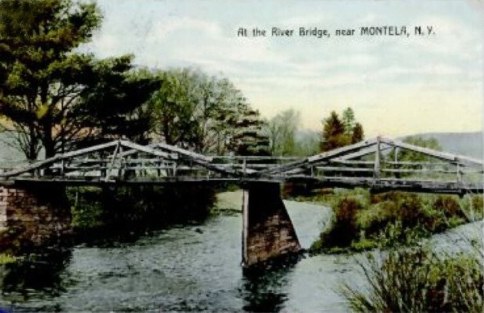
Montela old Wooden Bridge across the Rondout Stream
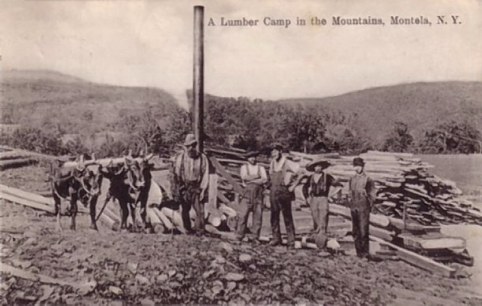
Montela Lumber Camp in the Mountains 1908
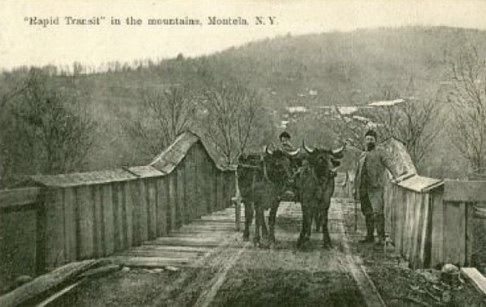
Montela old wooden bridge crossing
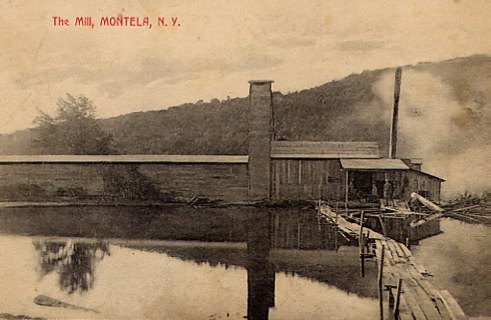
Montela Mill
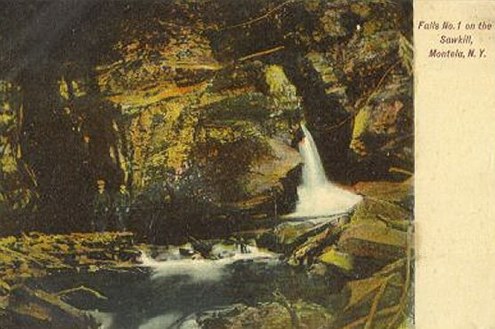
Montela Sawkill Falls
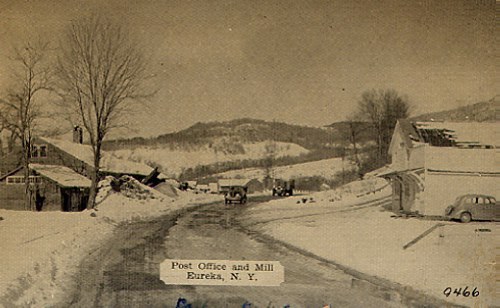
Eureka Main Street, Post Office on the right and old Mill on the left.
Lost Towns Contact Me and Favorite Links
